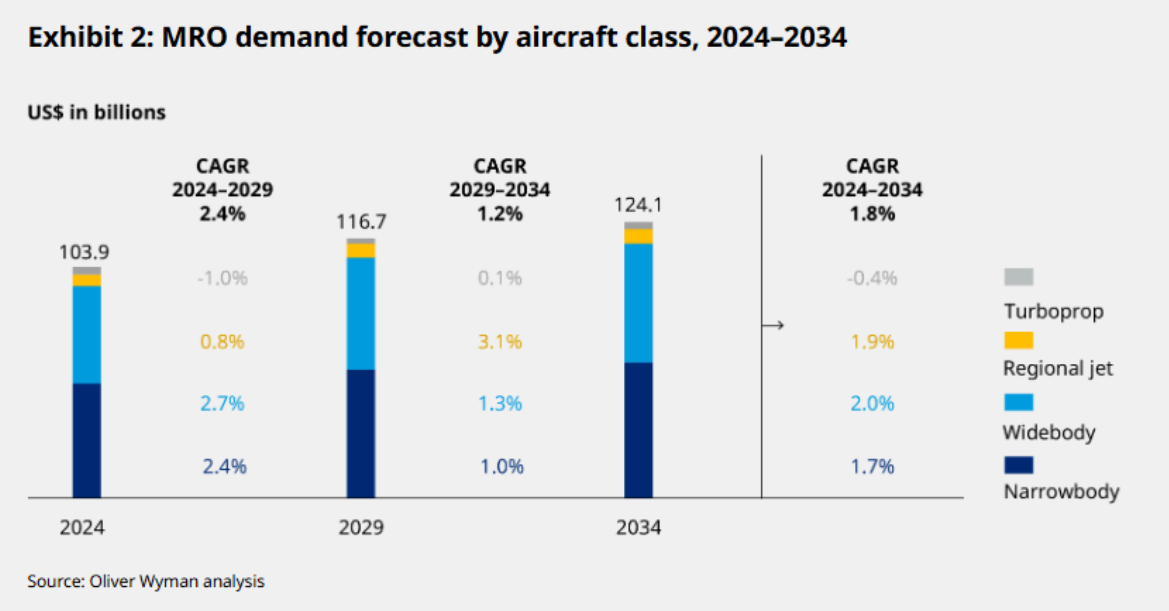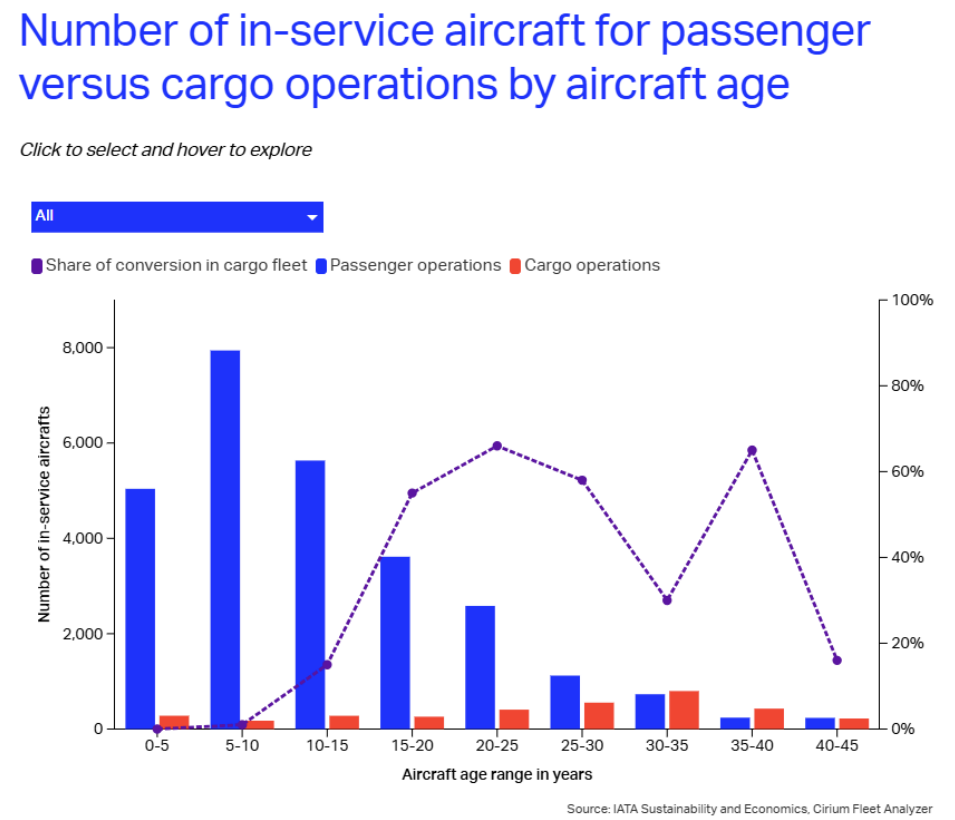The aviation maintenance, repair, and overhaul (MRO) market is undergoing a period of significant transformation. Growth in passenger traffic, aging aircraft fleets, and increasingly stringent flight safety regulations are creating both new opportunities and complex challenges for players in this sector.
According to forecasts Oliver Wyman
“Demand in the maintenance, repair, and overhaul (MRO) sector will grow 1.8% annually on average through 2034, when revenue will reach $124 billion. Our 2023-2033 forecast had the sector expanding at a 2.9% CAGR. In 2024, MRO revenue will rise almost 3% to $104 billion from $101 billion last year”

The global MRO market is demonstrating steady growth fueled by several factors. First, rising passenger numbers translate into increased flight frequency and, consequently, greater demand for maintenance. Second, the aging of a significant portion of the global aircraft fleet necessitates more frequent and comprehensive repairs. Third, stringent flight safety requirements imposed by regulatory bodies incentivize airlines and operators to conduct more frequent and thorough maintenance on their aircraft.

However, the MRO sector faces several challenges:
Competition: The market is becoming increasingly competitive, with new entrants and the strengthening of existing companies. This requires MRO organizations to continuously improve efficiency, reduce costs, and enhance service quality.
Digitization: The need to implement modern digital technologies to optimize processes, increase transparency, and improve data management is becoming increasingly critical. Lack of investment in digitization can lead to falling behind competitors and reduced competitiveness.
Supply Chains: Complex and multi-layered supply chains for aircraft parts create risks of delays and cost increases. Inefficient supply chain management can result in significant losses for MRO organizations.
Skilled Workforce: The shortage of qualified aircraft maintenance technicians is a major constraint on sector growth. This necessitates investment in training and personnel development.
Sustainability: Pressure to reduce greenhouse gas emissions significantly impacts the MRO sector. The use of environmentally friendly technologies and materials is becoming increasingly important for attracting clients and complying with regulations.
Key prospects for MRO sector development:
Supply Chain Integration: Creating more efficient and transparent supply chains to ensure uninterrupted supply of parts and materials. In this context, Sprocure LLC, with its IT solution Pantheon Pro, plays a vital role by automating the parts search and procurement process, increasing supply chain transparency and predictability, and enabling MRO organizations to accurately forecast parts requirements. Pantheon Pro also helps connect parts suppliers and clients worldwide.
Specialization: The emergence of specialized MRO organizations focusing on specific aircraft types or work scopes. This allows for increased efficiency and expertise in particular areas.
Mergers and Acquisitions: The MRO market is expected to continue consolidating, leading to the emergence of large international players. Sustainable Development: Implementing environmentally friendly technologies, utilizing recycled materials, and reducing waste are crucial for the future success of MRO organizations.
Repair and Replacement Management: Companies specializing in repair and replacement management, such as Sprocure LLC, play a key role in optimizing costs and time associated with part repairs or replacements. This market segment is poised for significant growth as airlines strive to minimize aircraft downtime.


